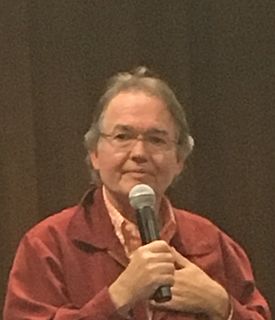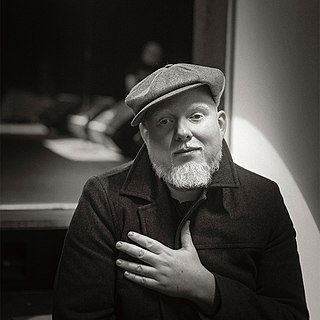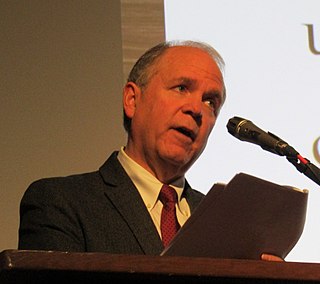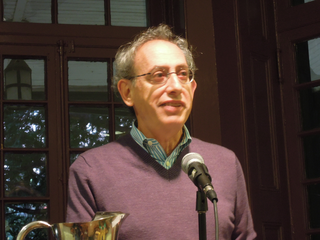Top 1200 No Appreciation Quotes & Sayings - Page 20
Explore popular No Appreciation quotes.
Last updated on April 20, 2025.
Gandhi has sound economic and cultural reasons for encouraging the revival of cottage industries, but he does not counsel a fanatical repudiation of all modern progress. Machinery, trains, automobiles, the telegraph have played important parts in his own colossal life! Fifty years of public service, in prison and out, wrestling daily with practical details and harsh realities in the political world, have only increased his balance, open-mindedness, sanity, and humorous appreciation of the quaint human spectacle.
Everyone deserves love and appreciation. If there is someone in the world whom we do not love, it is our blessing to work this out within ourselves. A very key spiritual principle, echoed in the Cayce readings as well as mainstream psychology, is that whatever we see in others that makes us angry, sad or jealous is a reflection of an issue we have in ourselves. If we can learn to love, respect and forgive ourselves, then we will not be angered and offended by what we see in others.
If the concept of consciousness were to fall to science, what would happen to our sense of moral agency and free will? If conscious experience were reduced somehow to mere matter in motion, what would happen to our appreciation of love and pain and dreams and joy? If conscious human beings were just animated material objects, how could anything we do to them be right or wrong?
Let there be music in the home. If you have teenagers who have their own recordings, you will be prone to describe the sound as something other than music. Let them occasionally hear something better. Expose them to it. It will speak for itself. More of appreciation will come than you may think. It may not be spoken, but it will be felt, and its influence will become increasingly manifest as the years pass.
I never really took into account the number of homeless families. As a kid, we used to feed the hungry at my church every other Saturday, and one day this kid from my school was there. Somewhere between that moment of realization and appreciation for what my Dad sacrificed for us to have, and me becoming "Anthony Mackie" I lost it. This movie [Shelter] really made me realize that, and it was very humbling and very sickening to see that within myself.
When a man can listen to a woman's feelings without getting angry and frustrated, he gives her a wonderful gift. He makes it safe for her to express herself. The more she is able to express herself, the more she feels heard and understood, and the more she is able to give a man the loving trust, acceptance, appreciation, admiration, approval, and encouragement that he needs.
And of course these days I feel like there is a nation of us - displaced southerners and children of the working class. We listen to Steve Earle, Mary J. Blige, and k.d. lang. We devour paperback novels and tell evil mean stories, value stubbornness above patience and a sense of humor more than a college education. We claim our heritage with a full appreciation of how often it has been disdained. And let me promise you, you do not want to make us angry.
The best results in the operation of a government wherein every citizen has a share largely depend upon a proper limitation of the purely partisan zeal and effort and a correct appreciation of the time when the heat of the partisan should be merged in the patriotism of the citizen. ... At this hour the animosities of political strife, the bitterness of partisan defeat, and the exultation of partisan triumph should be supplanted by an ungrudging acquiescence in the popular will and a sober, conscientious concern for the general weal. ... Public extravagance begets extravagance among the people.
What makes a sentence, a phrase, a moment, or a scene delightful? Something about recognizing the truth in it, hearing the music in it, understanding, intuitively perhaps, that the words are just right. It's not a matter of even context - delight is not limited to scenes or descriptions of happiness or beauty - but of aesthetic appreciation of the thing itself. As a reader, I find it's that moment when I want to stop reading, and also that moment when I know I can't. Delight is that it's what takes me by surprise and reminds me why I love the literary arts above all others.
What I love most about playing in front of people has something to do with a certain kind of energy exchange. The attention and appreciation of my audience feeds back into my playing. It really seems as if there is a true and equal give and take between performer and listener, making me aware of how much I depend on my audience. And since the audience is different every night, the music being played will differ too. Every space I performed in has its own magic and spirit.
Old stories would tell how Weavers would kill each other over aesthetic disagreements, such as whether it was prettier to destroy an army of a thousand men or to leave it be, or whether a particular dandelion should or should not be plucked. For a Weaver, to think was to think aesthetically. To act - to Weave - was to bring about more pleasing patterns. They did not eat physical food: they seemed to subsist on the appreciation of beauty.
There cannot be a sense of abundance or the experience of prosperity without appreciation. You cannot find beauty unless you appreciate beauty. You cannot find friendship unless you appreciate others. You cannot find love unless you appreciate loving and being loved. If you wish abundance, appreciate life.
Well, anyway, her death changed our lives for the better, because it brought a kind of awareness, a specific sense of purpose and appreciation we hadn't had before. Would I trade that in order to have her back? In a fraction of a millisecond. But I won't ever have her back. So I have taken this, as her great gift to us. But. Do I block her out? Never. Do I think of her? Always. In some part of my brain, I think of her every single moment of every single day.
A human life has seasons much as the earth has seasons, each time with its own particular beauty and power. And gift. By focusing on springtime and summer, we have turned the natural process of life into a process of loss rather than a process of celebration and appreciation. Life is neither linear nor stagnant. It is movement from mystery to mystery. Just as a year includes autumn and winter, life includes death, not as an opposite but as an integral part of the way life is made.
A part of my appreciation for the good which moments bring has come from awareness and recognition. But it has also come from a correspnding sadness which arises from their passing. When something that can never quite be reenacted comes to an end (and all moments are that way), I feel a pensiveness within. This pensiveness gives my life a quality that might be best described as bittersweet. And those moments take on double meaning and richness - because they are here now - and because they will not always be.
What is emotional intimacy? It is that depp sense of being connected to one another. It is feeling loved, respected and appreciated, while at the same time seeking to reciprocate. To feel loved is to have the sense that the other person genuinely cares about your well-being. Respect has to do with feeling that your potential spouse has positive regard for your personhood, intellect, abilities and personality. Appreciation is that inner sense that your partner values your contribution to the relationship.
In the 1970s, for example, I found myself learning to relish the poetry of Andrew Marvell and Sir Thomas Wyatt, and getting a handle on poetry of plainer speech than I had dwelt with heretofore. Which led me into a new appreciation of middle [William Butler ] Yeats, of the short three-beat line and forward-driving syntax, and that paid in, in turn, to a poem like Casualty in Field Work. The traffic, however, was usually the other way. My teaching was animated by what I was reading and being excited by as a poet.
More people should visit Antarctica, metaphorically speaking, on their own. That is one of the conclusions I have reached, one of my recommendations: explore something, even if it's just a bookshelf. Make a stab in the dark. Read off the beaten path. Your attention is precious. Be careful of other people trying to direct how you dispense it. Confront your own values. Decide what it is you are looking for an then look for it. Perform connoisseurship. We all need to create our own vocabulary of appreciation, or we are trapped by the vocabulary of others.
I've always loved independent music stores because the staff is usually there because of a genuine love and appreciation for music. They're more in-tune with the customers and I'm willing to pay the extra dollar or two for the service they provide. Some of my greatest music discoveries have come from picking up an album at an indy store and the cat behind the register saying "You like this man? Have you heard of so-and-so?" I prefer to shop where people understand me and the music- the music i like.
It is good to LOOK to the past to gain appreciation for the present and perspective for the FUTURE. It is good to look upon the VIRTUES of those who have gone before; to gain STRENGTH for whatever lies ahead. It is good to REFLECT upon the work of those who labored so hard and gained so little in this world, but out of whose DREAMS and early pains, so well nurtured, has come a great gravest of which we are the beneficiaries. Their tremendous EXAMPLE can become a compelling MOTIVATION for all of us. ~Gordon B. Hinckley
The writings of latter-day prophets clearly teach that the sorrows and sufferings endured by Adam and Eve upon their leaving the Garden of Eden were ordained by God and were a necessary part of their-and our-earthly experience. President Howard W. Hunter, then a member of the Quorum of the Twelve Apostles, taught: "We came to mortal life to encounter resistance. It was part of the plan for our eternal progress. Without temptation, sickness, pain, and sorrow, there could be no goodness, virtue, appreciation for well-being, or joy."
The arts put man at the center of the universe, whether he belongs there or not. Military science, on the other hand, treats man as garbage - and his children, and his cities, too. Military science is probably right about the contemptibility of man in the vastness of the universe. Still - I deny that contemptibility, and I beg you to deny it, through the creation of appreciation of art.
Read Mann's notes, which contain precise accounts of cholera and its symptoms, and observe how careful he is throughout his fiction in getting medical details straight - then you might begin to wonder whether cholera is the only candidate for the cause of Aschenbach's death. What results from this, I think, is a deeper appreciation of Mann's brilliance in keeping so many possibilities in play. The ambiguity is even more artful than people have realized.
Every attempt to reflect upon the Atonement, to study it, to embrace it, to express appreciation for it, however small or feeble it may be, will kindle the fires of faith and work its miracle towards a more Christlike life. It is an inescapable consequence of so doing. We become like those things we habitually love and admire. And thus, as we study Christ’s life and live his teachings, we become more like him.
One of the great errors organizations make is shutting down what is a natural, life-enhancing process-chaos. We are terrified of chaos. As a manager, it signals failure. But if you move out of control and into an appreciation of natural order, you understand that the only way a system changes is when it is far from equilibrium, when it moves from the 'quiet' we treasure and is confronted with the choice to die or reorganize. And you can't reorganize to a higher level unless you risk the perils of the path through chaos.
To me, money is a means to do good. I reached a point in my life where I had enjoyed tremendous business success that afforded my family everything we could possibly want. My wife and I then decided that we could use our wealth to make a difference. So we created the Broad Foundations to do four things: to improve urban public education, to support innovative scientific and medical research, to foster art appreciation for audiences worldwide and to support civic initiatives in Los Angeles.
A grower of chrysanthemums awaited a visit from the emperor, who was coming to enjoy his blossoms, of which there were hundreds in bloom. The grower selected one magnificent specimen, then cut down all the others, leaving this one perfect flower. The emperor arrived and sat for several hours quietly gazing at this beautiful flower, letting its beauty have its way with him. Can you imagine being so caught up in appreciation of one flower that everything else fades into the background?
If you knew that you were the owner of a million-dollar mind, would you treat your mind with more respect and appreciation? Would you put less poison in a million-dollar mind? Pay attention to what poisons you may be feeding your mind with & how now keeping your mind clear and healthy could make you more effective.
Women should be women and not babies that need petting and correction all the time. I know we like to be appreciated but if we do not get all the appreciation which we think is our due, what matters? We know the Lord has laid high responsibility upon us, and there is not a wish or desire that the Lord has implanted in our hearts in righteousness but will be realized, and the greatest good we can do to ourselves and each other is to refine and cultivate ourselves in everything that is good and ennobling to qualify us for those responsibilities.
Complete knowledge of the nature of an analytic function must also include insight into its behavior for imaginary values of the arguments. Often the latter is indispensable even for a proper appreciation of the behavior of the function for real arguments. It is therefore essential that the original determination of the function concept be broadened to a domain of magnitudes which includes both the real and the imaginary quantities, on an equal footing, under the single designation complex numbers.
To know whether photography is or is not an art matters little. What is important is to distinguish between good and bad photography. By good is meant that photography which accepts all the limitations inherent in photographic technique and takes advantage of the possibilities and characteristics the medium offers. By bad photography is mean that which is done, one may say, with a kind of inferiority complex, with no appreciation of what photography itself offers: but on the contrary, recurring to all sorts of imitations.
I see love, like art, as an obsession. Maybe that's an overly romantic view of human existence, but I'm an overly romantic human being. If love, like rock and roll, doesn't consume me 24-7, it's not love. It can be respect, appreciation, admiration, wonderment, it can be a world of glory and a lifetime of peace, but I can't call it love. Love burns me and confuses me. Love's a light that can't be extinguished.
An affectionate disposition not only makes the mind more peaceful
and calm, but it affects our body in a positive way too. On the
other hand, hatred, jealousy and fear upset our peace of mind, make
us agitated and affect our body adversely. Even our body needs peace
of mind and is not suited to agitation. This shows that an
appreciation for peace of mind is in our blood.
One is born with good taste. It's very hard to acquire. You can acquire the patina of taste. But what Elsie Mendl had was something else that's particularly American––an appreciation of vulgarity. Vulgarity is a very important ingredient in life. I'm a great believer in vulgarity––if it's got vitality. A little bad taste is like a nice splash of paprika. We all need a splash of bad taste––it's hearty, it's healthy, it's physical. I think we could use more of it. No taste is what I'm against.
When I think back about my immediate reaction to that redheads girl, it seems to spring from an appreciation of natural beauty. I mean the heart pleasure you get from looking at speckled leaves or the palimpsested bark of plane trees in Provence. There was something richly appealing to her color combination, the ginger snaps floating in the milk-white skin, the golden highlights in the strawberry hair. it was like autumn, looking at her. It was like driving up north to see the colors.
I have found that the more I reflect philosophically on the attributes of God the more overwhelmed I become at his greatness and the more excited I become about Bible doctrine. Whereas easy appeals to mystery prematurely shut off reflection about God, rigorous and earnest effort to understand him is richly rewarded with deeper appreciation of who he is, more confidence in his reality and care, and a more intelligent and profound worship of his person.
I like working with directors because I'm really opinionated about what things work and may not work, what audiences like and may not like, (not really) but I do have opinions about things. I like to be able to say them and then have them acted on. The director who responds to me like that, always gets my appreciation. I do appreciate it. What I find is the best directors, no matter what kind of name they have, are like that.
While almost all men feel an attraction drawing them to society, few are attracted strongly to Nature. In their reaction to Naturemen appear to me for the most part, notwithstanding their arts, lower than the animals. It is not often a beautiful relation, as in the case of the animals. How little appreciation of the beauty of the landscape there is among us! We have to be told that the Greeks called the world Kosmos, Beauty, or Order, but we do not see clearly why they did so, and we esteem it at best only a curious philological fact.
Most people have some appreciation of mathematics, just as most people can enjoy a pleasant tune; and there are probably more people really interested in mathematics than in music. Appearances suggest the contrary, but there are easy explanations. Music can be used to stimulate mass emotion, while mathematics cannot; and musical incapacity is recognized (no doubt rightly) as mildly discreditable, whereas most people are so frightened of the name of mathematics that they are ready, quite unaffectedly, to exaggerate their own mathematical stupidity
I've always been a very rebellious, philosophical person, so my mother set the foundation for my appreciation for nature and my empathy for other people. But then, being a sort of rebellious, philosophical thinker, I'm always looking for new ways to shake things up. So I feel like I'm really lucky to be alive in a time where there's so much opportunity to disrupt and shake it up. It's sort of a combination between that and having the foundation that my mother gave me.
[T]ruly to escape Hegel involves an exact appreciation of the price we have to pay to detach ourselves from him. It assumes that we are aware of the extent to which Hegel, insidiously perhaps, is close to us; it implies a knowledge, in that which permits us to think against Hegel, of that which remains Hegelian. We have to determine the extent to which our anti-Hegelianism is possibly one of his tricks directed against us, at the end of which he stands, motionless, waiting for us.
'They fell in love.' Such a rare and special event cannot be done justice by one statement; it involves so much more than that single sentence could explain: it means two people that were brave enough to show their scars, vulnerability, rough edges, happiest thoughts, along with their worst fears, and find a mutual respect, appreciation, and fondness for one another; they achieved a gift that not many people get to experience in their lifetime in its truest form.
Watching Italians eat (especially men, I have to say) is a form of tourism the books don't tell you about. They close their eyes, raise their eyebrows into accent marks, and make sounds of acute appreciation. It's fairly sexy. Of course I don't know how these men behave at home, if they help with the cooking or are vain and boorish and mistreat their wives. I realized Mediterranean cultures have their issues. Fine, don't burst my bubble. I didn’t want to marry these guys, I just wanted to watch. (p. 247)
Let's cease thinking of our accomplishments, our wants. Let's try to figure out the other man's good points. Then forget flattery. Give honest, sincere appreciation. Be hearty in your approbation and lavish in your praise, and people will cherish your words and treasure them and repeat them over a lifetime - repeat them years after you have forgotten them.
This morning take a few minutes to reflect on how you give of yourself to the world. Often we get caught up in the frenzy of buying and giving things. Look at the ways you give appreciation, friendship, energy, time, love, and affection, and give of your own special talents and abilities throughout the year. Acknowledge yourself for having enriched the lives of others. Spend some time loving yourself for the giving light that you are.
We are in a very critical and sensitive time in this nation. We need our president to sit down with folks who have a personal experience, a deep connection to the horror and the pain of this country`s provocative racial history. If the president wants to have a better understanding and appreciation for what he should do next, he needs to hear something from folks who have gone through this painful history. Without that personal connection to the painful past, it will be hard for him to regain that moral authority from my perspective.
Each day, awakening, are we asked to paint the sky blue? Need we coax the sun to rise or flowers to bloom? Need we teach birds to sing, or children to laugh, or lovers to kiss? No, though we think the world imperfect, it surrounds us each day with its perfections. We are asked only to appreciate them, and to show appreciation by living in peaceful harmony amidst them. The Creator does not ask that we create a perfect world; He asks that we celebrate it.
I think there's more support today. I think there's better understanding today. And there's a better appreciation for the fact that if any community is going to prosper, if any community is going to be seen at its best, that the women in that community have to be viewed as equally as important as the men. And [women] have to be able to live outside of boundaries that are placed on them because of their gender. As well as their race or their religion.
I am saying that out of a spirit of appreciation and gratitude, and a sense of duty, you ought to make whatever adjustment is necessary to give a little of your time-as little as two years-consecrating your strength, your means, your talents to the work of sharing with others the gospel, which is the source of so much of the good that you have. I promise that if you will do so, you will come to know that what appears today to be a sacrifice will prove instead to be the greatest investment that you will ever make.
The God who inspired the Bible is the same God who made the universe, Earth, and all life. This God is the very definition of truth; therefore nature's record will never contradict Scripture and vice versa. When a seeming contradiction confronts us, we can know with certainty we have either misunderstood (one, the other, or both revelations) or perhaps we haven't yet dug deploy enough. Whatever the case, we can embrace the opportunity to gain greater knowledge and appreciation for the Bible, for nature, and for the God who is responsible for both.
If the people in a relationship were able to get rid of this torment within and replace it with happiness, love, and a sense of well-being, they would never think to hurt another human being. They would be filled with an understanding of others and an appreciation of others and have an ability to reconcile differences without any violence whatsoever, to reconcile differences in a very loving way, a very happy way.
Someone has said it is better to appreciate the things you don't own than to own things you don't appreciate. I hope we will have with us a spirit of appreciation for all of the good things we enjoy, all the blessings that we have, many of which have come so easy to us, with very little effort on our part, and yet they are very real and very choice and are truly rich blessings.
Finally, I wish to remember the millions of Allied servicemen and prisoners of war who lived the story of the Second World War. Many of these men never came home; many others returned bearing emotional and physical scars that would stay with them for the rest of their lives. I come away from this book with the deepest appreciation for what these men endured, and what they scarified, for the good of humanity. It is to them that this book {Unbroken} is dedicated.
In the years since The Life and Extraordinary Adventures of Private Ivan Chonkin, Voinovich has sharpened his satire, and Monumental Propaganda is a novel that slashes and rips -- but not on every page. He expands his narrative to accommodate shrewd philosophy and inventive portraiture, a very amusing disquisition on Soviet latrines and a number of outlandish plot developments. In his translation, Andrew Bromfield deftly shifts his tone and tools as required, remaining true to Voinovich's Vonnegut-like playfulness and appreciation of the absurd.
If you want to change an external part of your life, then you are first required to change the internal beliefs that hold these patterns in place. If you want others to respond to you or your work in different ways and with more appreciation, then examine your expectations for your work and your efforts. When you believe in yourself, chances are others will find your worth also.
When we begin to understand the magnitude of [the Messiah's] sacrifice and service to us individually and collectively, we then cannot consider anything else to be of more importance or to approach His significance in our lives. "For most of us, this understanding does not come all at once and likely will not be fully complete during our mortal sojourn. We do know, however, that as we learn line upon line, our appreciation for the Savior's contributions will increase and our knowledge and assurance of their truthfulness will grow.

























































